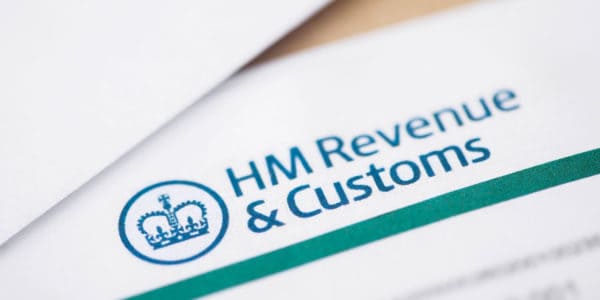Recent changes to data suppression laws, which were implemented through The Companies (Disclosure of Address) (Amendment) Regulations 2018, have made it easier for individuals to remove a home address from the public register at Companies House.
If you used your home address as a service address (aka ‘correspondence’ address), or your residential details are disclosed on publicly available company documents, you can now ask Companies House to remove your address from the register and from any public document filed since 2003.
This data suppression option applies to records relating to both existing and dissolved companies.
However, it is not possible to remove a home address from the public record where it has been used as a registered office or Single Alternative Inspection Location (SAIL) address.
Apply to remove your home address from the company register
To apply to remove your home address from the company register, you must download and file Companies House form SR01: Application under section 1088 by an individual to make an address unavailable for public inspection.
To complete the form, you will need to provide the following information:
- Full name, including any former name(s)
- Date of birth
- Address for correspondence relating to the application
- Usual residential address to be removed from the register
- Service address that will replace the residential address
- Details of each document containing the address to be removed:
- Company name and registration number to which the document relates
- Document type, number, or name
- Date the document was registered at Companies House
- Signature of applicant
You must send your completed application form by post to Companies House Cardiff and pay a fee of £55.00 (by cheque or postal order) for every document that contains the address that you want to remove.
Whilst the application to remove a home address will be available on the public register at Companies House, the only information that will be disclosed will be the service address (where applicable).
A record of your home address will still be held by Companies House, but it will not be shown on the public record once the necessary action to remove the address has been taken.
Locating company documents that contain your home address
There are a number of publicly available documents that may contain the home address of a company officer, member, or PSC if these details were provided as a service/correspondence address, including:
- Form IN01 Application to register a company
- Form AP01 Appoint a director
- Form AP03 Appoint a secretary
- Form CH01 Change the details of a director
- Form CH03 Change the details of a secretary
- Form PSC01 Notice of individual person with significant control (PSC)
- Form PSC04 Change of details of individual person with significant control (PSC)
- Statutory registers that the company has elected to keep on the central register (i.e. register of directors, register of members, and PSC register)
- Form CS01 (Confirmation Statement) Part 4: Change your shareholder information
To locate all of the public documents that contain your home address, search for your company on the Companies House register and go to ‘Filing History’. You will then be able to view every publicly available document and determine which ones contain the address that you want to remove.
Who can apply to remove a home address from Companies House?
The changes to data suppression laws will have a positive impact on many individuals who wish to protect their home address and enhance their personal privacy. The persons who can apply to remove a home address from the public record are past and present company directors and secretaries, shareholders and guarantors, People with Significant Control (PSCs), and LLP members.
Prior to these new laws, you could only remove a home address from the Companies House register if you could demonstrate a serious risk of violence or intimidation. Even then, however, it was challenging to get address details removed from individual documents. Under the new regulations, it is now much easier.
Withholding your address from credit reference agencies
Many people don’t realise that, even if you provide a service address for a director or a PSC so that your home address isn’t publicly viewable, the home address will still be accessible to credit reference agencies.
In certain circumstances, it is possible to ask Companies House not to supply credit reference agencies with this information. To do this, directors need to apply for a ‘Section 243 Exemption’, whilst PSCs need to apply for a ‘Section 790ZF Exemption’. To be eligible for these exemptions, you must be at risk of violence or intimidation as a direct result of your company’s work, and you must be able to provide proof, such as:
- A police incident number if you have been assaulted or attacked
- Documentary evidence, e.g. photos or recordings of a threat or attack
- Evidence of potential disruption or targeting, e.g. from activists)
- Evidence that you work for a company whose activities put you at risk
To request the appropriate application form, you must contact Companies House by email [email protected] or phone 0303 1234 500 and advise them which section you are applying under. You will need to pay a fee of £100.00 to apply.
How long does company information remain on public record?
Information about a company and its officers, members, and PSCs remains on the public register for the entire time that a company is in existence; therefore, all of this data is available to the public as long as the company is ‘live’. This includes information about resigned officers, former members, and PSCs, and it also applies to companies that are dormant.
When a limited company is dissolved, all disclosed information remains on the Companies House public register for 20 years. Dissolved company records that are over 6 years old are not available to the public on the free Companies House Service, but they can be viewed on other search services.
After 20 years, Companies House transfers certain dissolved company records to The National Archives, all of which can be requested by the public. Any records that are not transferred are destroyed.
Keeping your home address private at Companies House
The best way to protect your home address and keep it off the public register is to use a non-residential address as a registered office and service address. According to a report launched by Cifas and LexisNexis Risk Solutions, “company directors are more than twice as likely to be the victims of identity fraud compared to the rest of the general population.” It is, therefore, incredibly important to avoid posting sensitive information online and take whatever steps necessary to protect your privacy.
At Quality Company Formations, we provide a range of products and services that offer privacy protection. If you are planning to set up a new company, our Privacy Package is ideal. Available for just £53.99 + VAT, this package includes a premier London registered office and director’s service address.
Our address is also available to be used as a registered office and service address to existing companies and current directors. Situated in central London in the prominent district of Covent Garden, our Registered Office Service is available for only £39.00 per year, and our Service Address can be purchased for £26.00 per year.
When using our registered office and/or service address, our London address will be added to the public register at Companies House, giving you peace of mind that your home address and personal privacy remain protected.
Please note that the information provided in this article is for general informational purposes only and does not constitute legal, tax, or professional advice. While our aim is that the content is accurate and up to date, it should not be relied upon as a substitute for tailored advice from qualified professionals. We strongly recommend that you seek independent legal and tax advice specific to your circumstances before acting on any information contained in this article. We accept no responsibility or liability for any loss or damage that may result from your reliance on the information provided in this article. Use of the information contained in this article is entirely at your own risk.











Join The Discussion